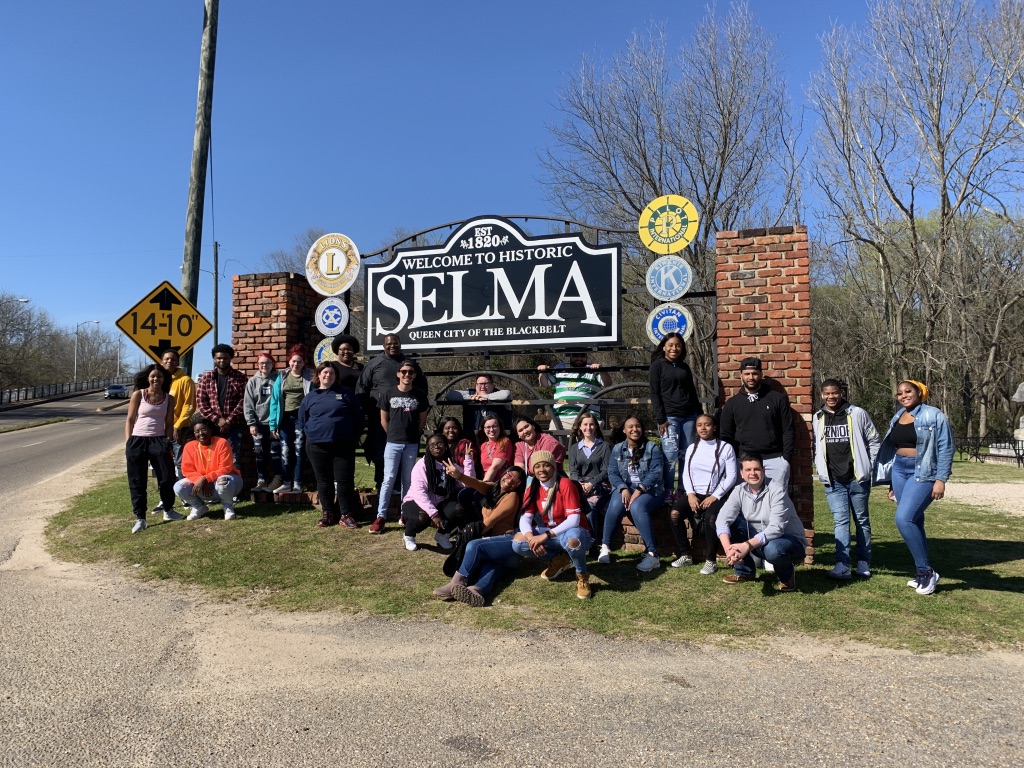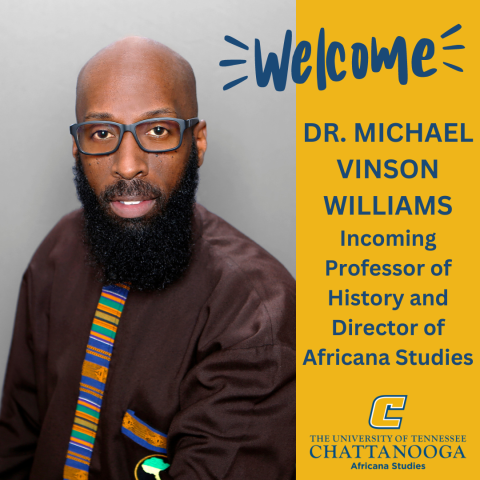Africana Studies

The Africana Studies minor offers students an interdisciplinary perspective on African, African American, and Afro-Latin American history, culture, literature, and politics. Now housed in the Department of History, the Africana Studies minor draws faculty from academic programs across the university—including English, Sociology, Anthropology, Criminal Justice, Political Science, Music, and Communications.
The program develops students’ awareness of the social, political, and cultural issues related to the Africana experience from its historical beginnings to the present day. The Africana Studies minor develops and exposes students to multiple components of the Africana experience, tracing the history and legacies of African diaspora and exploring the broad arenas of black cultural expression. In doing so, the minor prepares students for life beyond UTC, for graduate programs, and for an increasingly global and diverse workforce.
For more information on the minor, please contact Professor Michael Vinson Williams ([email protected]).
Follow UTC Africana Studies on Instagram @utc_africanastudies!
Welcome Dr. Michael Vinson Williams!
A message from former Director of Africana Studies, Prof. Julia Cummiskey (March 27, 2024)
UTC has had a minor in Black or Africana Studies since 1988 and since that time, coordinating the program has been a duty shared among a variety of faculty in addition to their regular duties. Those individuals (some of whom are featured in a recent post on our Instagram account) contributed enormous value to the program as it established itself and began to grow. The program has grown considerably over the years, as has the need for the university to invest in a senior faculty member with the time and the backing necessary to take us to the next level. Almost a year ago, we announced that we would be conducting a national search for that position—a first for Africana Studies at UTC. Thanks to the dedicated work of a search committee including Dr. Eckelmann and Dr. Kuby from the History Department; Dr. DeAnna Beasley from the Biology, Geology, and Environmental Science Department; Mr. Christopher Stokes, the Assistant Director of Multicultural Affairs and National Pan-Hellenic Council Advisor; as well as the sustained efforts of Africana Studies Advisory committee members Dr. Chandra Ward (Sociology), Prof. Tiffany Mitchell (English), and Vice Provost Shewanee Howard-Baptiste, we identified an outstanding candidate. He is an accomplished scholar with a distinguished record of program building, community engagement, and student support. I am thrilled to announce that Dr. Michael Vinson Williams will join the UTC community starting in August as a Professor of History and Director of Africana Studies. Dr. Williams will be visiting campus in April and giving a public talk. We hope you will attend. You can read more about Dr. Williams on the History Department news site. Please follow along on Instagram @utc_africanastudies and stay tuned for more news about Dr. Williams’s talk in April, other events, and more.
It has been my very great honor to serve this program alongside such incredible colleagues and students. I want to thank the many faculty, staff, and students who were part of this process, including Prof. Mike Thompson (History), Prof. Kira Robison (History), College of Arts and Sciences Dean Pamela Riggs-Gelasco, and Vice Chancellor Stacy Lightfoot, as well as everyone who will help make Dr. Williams welcome here in Chattanooga and contribute to the program under his leadership. We will all be working together to ensure a smooth transition for Dr. Williams, our students, and the program. I look forward to seeing big things from UTC’s Africana Studies Program in the future!
